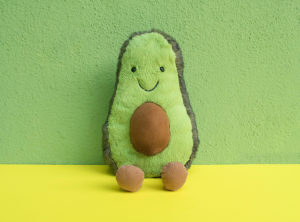
Editor’s note: Caroline Parsons is an attorney from Queensland, Australia. Today she poses questions to help you determine if you have a healthy relationship — with a partner and with yourself. Learn more about Caroline Parsons on the Lovefraud Announcements page or in her author profile.
By Caroline Parsons, Esq.
There’s a litmus test question for determining whether you are in an abusive relationship. Have you ever asked yourself, “Is this what marriage/love/living together is supposed to be like?”
We all have issues with our partners from time to time. Two independent adults living together will always cause a certain amount of friction. Most of us accept a level of give and take in our relationships. But what if you’re always giving and your partner is doing most of the taking? It can lead to a simmering level of resentment.
In a healthy relationship, this resentment can be shared and dealt with – a reshuffle of household chores, a reassignment of roles within and outside the home to ensure that the work of running a family and a home is distributed more evenly.
In a toxic relationship, complaints of unfairness are often dealt with by derision, gaslighting or blame, with a side helping of guilt. The partner on the receiving end of this treatment walks away feeling like they were nagging, blameworthy and useless for asking for help. And they don’t ask again.
Instead, what was open dialogue becomes internalised debate. Much like a patient with liver disease, the abused partner starts to realise that things just aren’t right somehow. And they begin an argument within themselves about whether they should stay or leave.
A lot of energy goes into this internal debate, weighing up the pros and cons, particularly where children are involved. And in most cases, the stay side wins because “it’s not that bad, they haven’t hit me,” or “I can keep the children safe more easily if I stay.”
Healthy relationships mean opening yourself up to another person and receiving support, encouragement and respect. Healthy means being able to express your emotions – the good, the bad and the ugly – without fear of reprisals or derision. And the first step to healthy is having a healthy relationship with yourself.
Talk to yourself as you would a close friend: with love and care, not blame and guilt. Treat yourself like a really special person who deserves praise and acknowledgement. Because, quite simply, you do. We all do. Once you find healthy within yourself, you’ll recognise it without. And perhaps take the next steps towards healthy and away from toxic.
According to author Mandy Hale, “Never forget that walking away from something unhealthy is brave, even if you stumble a little on your way out the door.”
Learn more: Reclaim your power in family court cross-examination, presented by Caroline Parsons


 No One Can “Make You Feel” Hurt, Angry, or Anything Else
No One Can “Make You Feel” Hurt, Angry, or Anything Else